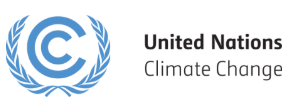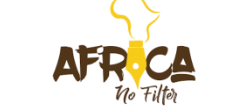The West African Human Rights Defenders Network (WAHRDN) piloted a capacity building program for the most vulnerable Women Human Rights Defenders for more efficient protection.
At the end of this program, we handed our microphone to Madame Mélanie SONHAYE KOMBATE, Director of the Regional Secretariat of the West African Human Rights Defenders Network, who speaks out on the subject.

- Welcome and Good morning Madam Melanie SONHAYE KOMBATE. You’re the West African Human Rights defenders’ Network regional Secretariat’s Director. Your organization is in the final stages of implementing the women human rights defenders (WHRDs) and vulnerable human rights defenders’(VHRDs) program. What motivated the establishment of a program for WHRDs and WHRDs?
Since its creation in 2005, the West African Human Rights Defenders’ Network (WAHRDN), as its name already indicates, is dedicated to the promotion and protection of human rights defenders, women human rights defenders include. This has only been possible through capacity building activities, advocacy and protection of the target group through urgent interventions, referrals to national, regional and international human rights mechanisms and especially through advocacy actions undertaken by the organization and its members for the benefit of human rights defenders working at the grassroots. The WAHRDN has also distinguished itself by its ability to work in partnership with like-minded organizations that have similar goals.
With 16 years of experience, the WAHRDN has realized that beyond the vulnerability to which all HRDs are exposed, even more vulnerable sub-groups of HRDs exist. These include HRDs working on gender issues, sexual minorities, business and human rights, land issues, sex workers, those working in areas under terrorist control, and journalists working in crisis terrains or in countries undergoing democratization and WHRDs.
Thus, in 2018, with the financial support of Foundation for a Just Society (FJS), which we sincerely thank, a campaign was conducted by the WAHRDN’ Secretariat and the Burkinabe Human Rights Defenders’ Coalition (CBDDH) on the West African sub-region. This campaign, which aimed to publicize the situation of the most vulnerable human rights defenders (VHRDs), had reached human rights actors at the national, regional and universal levels.
However, the 62nd session of the African Commission on Human and Peoples’ Rights (ACHPR), held in Nouakchott, Mauritania, from April 25th to May 9th, 2018, marked a major breakthrough in this Campaign on Vulnerable HRDs, whose slogan: « Each State has the responsibility and duty to protect human rights defenders » produced a resounding response, leading HRDs to freely externalize the violations of rights they have been victims of due to their work, and the difficulties in organizing their protection and safety.
It is as a result of this project that Foundation for a Just Society has once again agreed to support, as of January 2019, the « Program to Strengthen the Promotion and Protection of Women Human Rights Defenders (WHRDs) and the Most Vulnerable Human Rights Defenders (VHRDs) in West Africa », a program carried out by the CBDDH, the WAHRDN Secretariat and the Ivorian Human Rights Defenders’ Coalition (IHRDC).
2- How long did this project last? And what lessons can be learned from it?
The « Program to strengthen the promotion and protection of women human rights defenders (WHRDs) and the most vulnerable human rights defenders (VHRDs) in West Africa » was scheduled to end in December 2020. It was extended to December 2021 due to some difficulties identified during the mid-term evaluation by the WAHRDN Secretariat, the CBDDH and the IHRDC.
Several lessons were learned during the implementation of the program. The involvement of all the members of the WAHRDN in the same action at the same time is an important lesson for the network. The study on the situation of HRDs and VHRDs in West Africa allowed the project leaders, HRDs and especially all human rights actors, including the States, to have scientific information and a global vision of the sub-region on the issues addressed, especially to become aware of the challenges and the recommendations made. The involvement of the coalitions in the realization of the quarterly activities has given the WHRDs their rightful place at the national level.
Moreover, the implementation of this program is an opportunity to see the determination of the WHRDs and HRDs who are working and contributing to change mentalities on culturally sensitive issues such as contemporary slavery, reproductive rights, civil and political rights, sexual minorities issues, women’s leadership or economic, social and cultural rights.
3- At the end of this project, what is your assessment?
A positive assessment. The implementation of this program has allowed the WAHRDN to have an updated and recent state of affairs on the situation of WHRDs and VHRDs in West Africa, taking into account new challenges such as the pandemic related to COVID-19. Collaboration between the member coalitions and focal points and the Secretariat was strengthened during this period when members were particularly solicited and involved in the implementation of activities. This program contributed to strengthening the presence of the WHRDs within WAHRDN’s Coalitions and focal points through activities organized for them. The relationship between the WHRDs and the authorities in charge of human rights was impacted by the advocacy and collaboration actions undertaken in the different countries.
The program also allowed for a journey to the heart of the WAHRDN bodies and to identify their strengths and weaknesses. Above all, the WAHRDN can be proud of the capacity building and visibility that the program has brought to it.
4- How do you feel at the end of this program?
A feeling of gratitude to the Foundation for a Just Society for providing the support we needed to achieve the objectives of this great program. A sense of the increasing challenges that the WAHRDN will face in the future.
5- Are there any recommendations you have to make, and to whom do these recommendations go?
Several recommendations can be made here. To HRDs, WHRDs include, National Human Rights Institutions, States and other national and international partners, it is important to appropriate the content, in particular the recommendations of the « Study on the situation of women human rights defenders and other most vulnerable human rights defenders (WHRDs &VHRDs) in West Africa ». Contributing effectively to the implementation of this study would be an asset.
As the study is the property of the WAHRDN, the latter is willing to accept any financial support over the coming years in order to update the data.
6. Thank you Madam Director.
Through me, the WAHRDN would like to also thank you.



